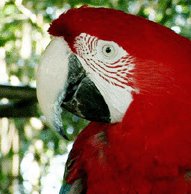Avian influenza: EU bans imports of captive live birds from third countries
 Member States today endorsed a draft Commission decision to ban imports from third countries of captive live birds other than poultry for commercial purposes, at a meeting of the Standing Committee on the Food Chain and Animal Health (SCFCAH). These measures, which follow the detection of highly pathogenic avian influenza in a bird held in quarantine in the UK last week, aim to strengthen further the EU’s defences against avian influenza. The ban covers captive live birds other than poultry imported for commercial purposes. A separate decision regulates the movement of birds accompanying their owners which will be subject to certain conditions.
Member States today endorsed a draft Commission decision to ban imports from third countries of captive live birds other than poultry for commercial purposes, at a meeting of the Standing Committee on the Food Chain and Animal Health (SCFCAH). These measures, which follow the detection of highly pathogenic avian influenza in a bird held in quarantine in the UK last week, aim to strengthen further the EU’s defences against avian influenza. The ban covers captive live birds other than poultry imported for commercial purposes. A separate decision regulates the movement of birds accompanying their owners which will be subject to certain conditions.The ban on commercial imports of captive live birds and the regulation of movements from third countries of birds accompanying their owners (pet birds) will be effective immediately following adoption by the Commission expected in the next few days. Certain derogations from the ban are provided within today’s decisions. Birds will be allowed to be moved between approved zoos and similar institutions. Hatching eggs of non-poultry birds can be imported for use in authorised hatcheries if their shells are decontaminated upon arrival, or if they are being sent to zoos. Concerning the movement of birds accompanying their owners, Member States can allow no more than five birds accompanying their owners to enter from third countries on condition that they have undergone a 30-day quarantine in approved third countries, otherwise they must be subject to 30 days quarantine in the Member State of destination. As an alternative to quarantine, such birds may be admitted if they have been vaccinated against avian influenza, or have tested negative for avian influenza during a ten day isolation period before movement. The movement of birds accompanying their owners is not restricted for Norway, Switzerland, Liechtenstein Andorra, Iceland, Greenland, Faeroe Islands and San Marino. The decisions taken today will apply until 30 November, 2005, before which time SCFCAH will review the situation.

<< Home